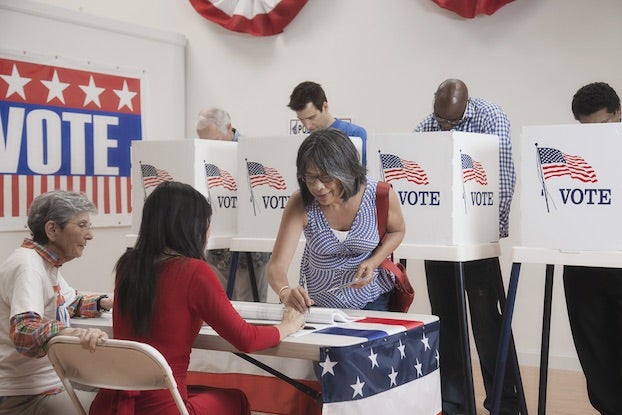Jim Beam column: Speed up rural internet
Published 7:22 am Thursday, January 13, 2022

- Rural Louisianans are missing so much by being unable to receive high-speed internet, but help may be on the way.MetroCreative Graphics.
Anytime I lose my internet connection, panic sets in quickly. Unfortunately, many citizens in the state’s rural parishes either have poor internet reception on a regular basis or no reception at all.
A USA Today analysis reported last July showed that in 33 of the state’s 64 parishes, no more than 17 percent of households actually had high-speed internet access. The Illuminator reported last October that over 400,000 households statewide don’t have high-speed internet, and the number is probably higher.
Access to the internet in those parishes is a problem that the state’s members of Congress and the Legislature should have solved a long time ago. Jan. 2, 1983, is considered the official birthday of the internet, but the first widely downloaded internet browsers didn’t come until 1993.
I have personally witnessed development of the internet and once experienced the same problems that rural citizens are going through today.
When I first covered the Legislature in 1968, I wrote my stories on a typewriter, packaged them up and sent them from Baton Rouge to Lake Charles on a Greyhound bus. I don’t remember exactly when, but the first computer I used was a bubble-looking device.
Laptop computers first appeared in 1981. When I got one some years later, my biggest problem in Baton Rouge after legislators quit for the day was finding a place to get on the internet. I had a wired connection at the state Capitol.
The hotel I stayed in didn’t have good internet reception on a number of occasions, and I spent a lot of time working at a table in the Barnes & Noble bookstore in Baton Rouge.
Like many of today’s rural citizens I also spent a lot of time in or near a McDonald’s when I could find one. I tried to use my laptop when our family went on Florida vacations in those early years, but often could only get Wi Fi reception from a hotel next door.
Some rural residents can only use the internet one person at a time, and connections are often slow. Most are unable to watch movies and TV shows on the internet like many of us can do in urban areas.
When the coronavirus pandemic forced students and teachers into virtual classrooms, people in rural areas struggled because of low internet speeds.
Efforts are now under way to correct the rural problem, and we can only hope it doesn’t take much longer. That will be the job of the Broadband Development and Connectivity Office, a unit of state government under the Division of Administration.
Louisiana has been allocated $342 million by the Federal Communications Commission to provide broadband to 175,692 locations in the state. Thirteen companies have six years to build the infrastructure, according to the Illuminator.
Another $177 million from the state’s share of the American Rescue Plan Act will also address the internet issue. That would connect up to 145,000 households to high-speed internet. However, it is estimated it will cost around $1.1 billion and take until 2029 to bring high-speed internet to every household in Louisiana.
The Monroe News-Star reported last November that affordability, not lack of infrastructure, is the major problem for what is called the digital divide, “the gap between those with ready access to the web and those without.”
The average internet bill in the U.S. is $64 per month. Some providers have plans costing $100 or more per month. Satellite internet is even more expensive.
What happens if rural areas have an internet company, but don’t get high-speed internet? Wilson, N.C., a city of 50,000, couldn’t, and NPR reported that Wilson decided to build its own company.
Time-Warner, its private company, and other major providers successfully got the North Carolina Legislature to enact the Level Playing Field Law, which doesn’t allow city governments to compete with those private providers.
Wilson, however, managed to get its state Legislature to give it an exemption since the communications company it created was affordable and reliable and was turning a profit. Eighteen states, including Louisiana, have now passed laws that make establishing community broadband (internet) difficult. Louisiana’s law is the Local Government Fair Competition Act.
Lafayette operates its own LUSFiber company that began serving customers in February 2009. Its creation did end up in court, but the Louisiana Supreme Court said a brief challenging the company was filed too late.
Creating another company like it would be extremely difficult. Rural areas in Louisiana will have to pin their hopes on the private companies that will get those government funds to give them the kind of high-speed internet they deserve — and sooner rather than later.





